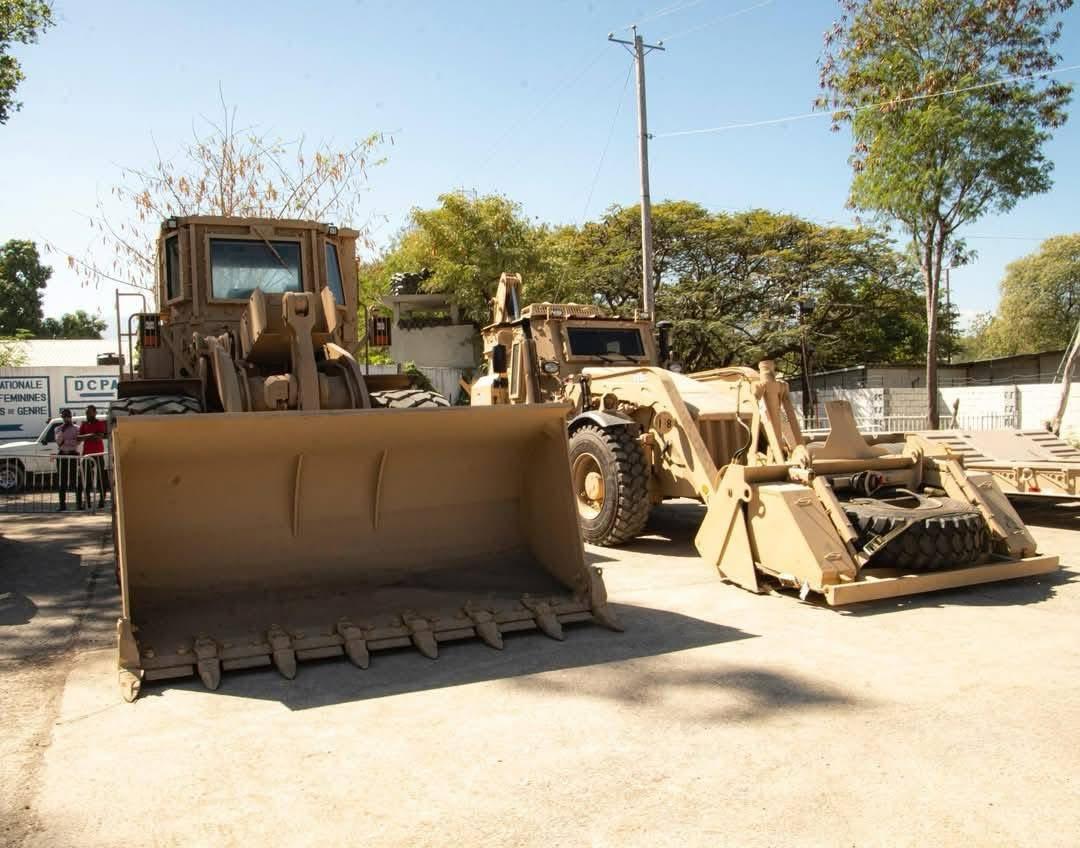

The US has delivered at least 600 assorted guns to the Kenyan-led Multinational Security Support Mission (MSS) in Haiti boosting ongoing operations against criminal gangs in the Caribbean nation.
The donation made on Monday, February 10 also included nine
pickups, two trucks, two excavators, two armoured loaders and tens of bullets.
Officials said this will boost the ongoing operation against the
gangs on the ground in general.
MSS commander Godfrey Otunge said the mission has
significantly improved its operational capabilities.
“This donation underscores the United States’ continued
commitment to supporting both the Haiti National Police (HNP) and MSS, enhancing
their operational capacity to combat gangs and restore peace in Haiti,” he
said.
The air support has been strengthened with reinforcements from
El Salvador. Maritime capabilities have been bolstered by contributions from
the Bahamas and land operations have been enhanced with equipment provided by
donor nations.
A Ukrainian cargo plane had arrived from El Salvador carrying
three helicopters designated for medical evacuations (Medevac) and casualty
evacuations (Casevac).
The day’s events silenced sceptics who had speculated that the mission was on the verge of collapse following the U.S. government’s recent decision to freeze funding to the Trust Fund.
“The successful arrival of
reinforcements and equipment demonstrated that the MSS mission remains fully
operational and progressing toward its objectives.”
The Kenyan team is part of the group of a UN-approved
international force that will be made up of 2,500 officers from various
countries.
On Saturday, February 8, 2025, residents of Kenscoff were surprised by an unannounced visit from Haiti's Transitional Presidential Council President Leslie Voltaire, PNH Director General Normil Rameau and Otunge.
Their visit was a show of support for the joint security forces
bravely combating gang violence in the commune.
The team visited the local police station and town hall,
reaffirming their commitment to restoring security and ending criminal
activities in the area.
Later, HNP and MSS launched a muscular operation in
Croix-des-Bouquets, targeting the stronghold of the 400 Mawozo gang, led by
Lanmô San Jou, Otunge said.
Security forces dismantled structures set up for an unauthorized
carnival festival, sending a firm warning that gangs will not be allowed to
operate freely under MSS/PNH watch.
The joint operations continued in Tabarre where several
Krazebarière gang members were arrested. Security forces seized 15 handguns and
12 communication radios from their base, striking a major blow against
Vitèlôme’s criminal network, part of the ‘Vivansam’ gang alliance.
Chronic instability, dictatorships and natural disasters in recent decades have left Haiti the poorest nation in the Americas.
Last year, Haiti saw a record number of neighbourhoods in Port-au-Prince and surrounding areas fall to armed gangs, despite the presence of foreign forces and a new U.S.-backed transition government.
As the gangs took over neighbourhoods and carried out some of the worst massacres in recent memory, they also deepened the country’s humanitarian crisis as tens of thousands more Haitians were forced to flee their homes.
The United Nations said more than 5,600 people were killed by gang violence last year, an increase over the previous two years, and over 1 million Haitians are now displaced.
The international security mission, while approved by the U.N. Security
Council, is not a United Nations operation and currently relies on voluntary
contributions.












